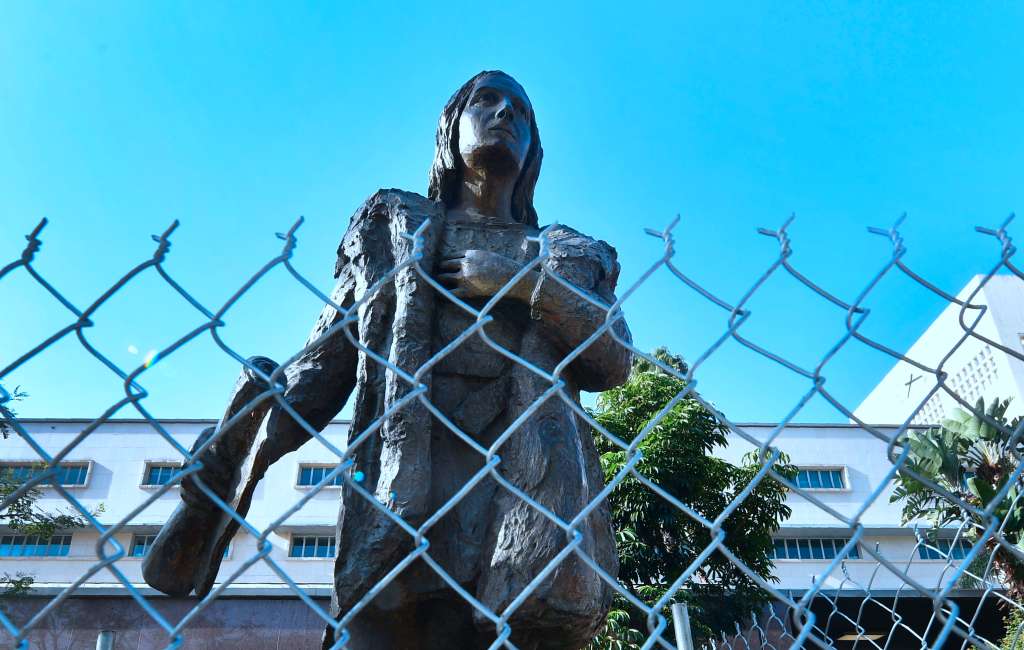(CNN) — Columbus Day has been a political lightning rod for states, cities and municipalities around the US for years now. Some have decided to do something about it.
Virginia is the latest state to officially observe “Indigenous Peoples’ Day” instead, a holiday to recognize the native populations that were displaced and decimated after Christopher Columbus and other European explorers reached the continent.
Technically, Columbus Day is a federal holiday, which means it is recognized by the US government and thus brings the closure of non-essential government offices, and, usually, places like post offices and banks.
But states and local governments can choose not to observe a federal holiday. And, as is the case with a growing number of places, change the name and intent of the October holiday altogether.
Not listed here are more than 130 cities that have ditched Columbus Day for Indigenous Peoples Day — and the list grows yearly.
States that officially celebrate Indigenous Peoples’ Day
Alaska: Observes Indigenous Peoples’ Day as of 2017
Gov. Bill Walker signed observances of the holiday in 2015 and 2016 before making the switch official in 2017.
Hawaii: Observes Discoverers’ Day in place of Columbus Day
Maine: Observes Indigenous Peoples’ Day as of 2019
New Mexico: Observes Indigenous Peoples’ Day as of 2019
Oregon: Observes Indigenous Peoples Day as of 2017
South Dakota: Observes Native American Day as of 1990
Vermont: Observes Indigenous Peoples’ Day as of 2019
States and DC that observe Indigenous Peoples Day via proclamations
Iowa: Iowa Gov. Kim Reynolds made a proclamation in 2018 designating Columbus Day as Indigenous Peoples’ Day.
Louisiana: The Pelican State doesn’t recognize Columbus Day. Gov. John Bel Edwards declared October 14, 2019, the state’s first Indigenous Peoples’ Day but hasn’t issued a 2020 proclamation yet.
Michigan: On October 14, 2019, Gov. Gretchen Whitmer declared the day to be Indigenous Peoples’ Day “to uplift our country’s indigenous roots, history, and contributions.”
Minnesota: In 2019, Gov. Tim Walz signed a proclamation declaring the second Monday in October Indigenous Peoples’ Day. The state is home to 11 Tribal Nations.
North Carolina: Gov. Roy Cooper has made yearly proclamations designating the second Monday in October as Indigenous Peoples’ Day.
Virginia: In 2020, Gov. Ralph Northam declared Monday the first Indigenous Peoples’ Day in Virginia, calling it an “important step in creating an inclusive, honest Commonwealth.” The state is home to 11 native tribes.
Wisconsin: Gov. Tony Evers established Indigenous Peoples’ Day via an executive order days before the observance in 2019.
Washington, DC: The DC Council voted to replace Columbus Day with Indigenous Peoples’ Day a few days before the 2019 observance.
States that celebrate both holidays
Alabama: The state celebrates both Columbus Day and American Indian Heritage Day.
Oklahoma: In 2019, the state voted to move Native American Day to the same day as Columbus Day so the two could be celebrated concurrently.
(Copyright (c) 2024 CNN. All Rights Reserved. This material may not be published, broadcast, rewritten, or redistributed.)

